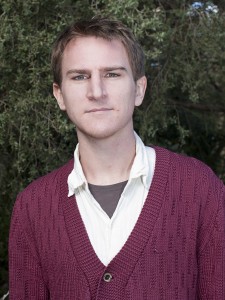
This Sunday marks the ten-year anniversary of the day the US suffered its biggest attack on its own soil. Ten years since the World Trade Center was brought down in an unprecedented act of theatrical terrorism.
This moment of collective trauma catapulted the West into a decade of conflict, marked by two wars and what some have described as an assault on civil liberties in the name of defending ‘our way of life’.
The resulting wars have resulted in hundreds of thousands of civilian and military deaths in Iraq and Afghanistan.
The attack has redefined what is considered a lethal weapon; while a can of deodorant, nail clippers and hair pins are confiscated before boarding if you leave them in your carry-on luggage.
But have the wars and the new security regime made the world a safer place?
A former member of the Australian Intelligence Corps and visiting fellow at the Australia National University’s Strategic and Defence Studies Centre, Clive Williams, believes it hasn’t.
‘The war in Iraq and our involvement…was seen by Islamist extremists as highlighting our preparedness to go along with the US – despite the tenuous…link in Iraq to WMD and international terrorism,’ he says.
‘Involvement in the invasion of a Muslim nation made us more of a target for international terrorism.’
While the war in Iraq is widely viewed by international relations scholars as misguided, Afghanistan was meant to be different.
As the training ground and epicenter of Osama bin Laden’s Al-Qaeda network, which claimed responsibility for 9/11, a US-led invasion seemed inevitable.
This hasn’t reduced total violence however, with statistics from the US National Counterterrorism Center recording an increase in deaths attributed to acts of terror worldwide from 498 in 2004 to 6,547 in 2010.
And little has changed in the short time since Osama bin Laden’s death.
But researcher at the Singapore-based International Centre for Political Violence and Terrorism Research, Arabinda Acharya, believes there’s more to the issue than what first meets the eye.
‘The terrorist threat today is not simply from Al-Qaeda, but from a more dispersed, less coherent movement of jihadists, inspired by Al-Qaeda’s ideology though not necessarily controlled by it,’ he says.
‘[They] share the agenda, strategy and tactics even without direct contact.
‘Organisational decline, together with lack of training opportunities, has significantly reduced the possibility of large scale attacks,’ he says.
‘Al-Qaeda is nothing more than a social network which merely inspires rather than drives the global jihad.’
Meanwhile, the threat of terror remains real for Australians.
‘A large scale terrorist attack anywhere in the world could cause Australian deaths because so many of us travel and work overseas,’ says Clive Williams.
‘Since 2000, 128 Australian civilians have died as a result of terrorism overseas; 95 of them in Indonesia,’ he says.
‘Most Australians are complacent about terrorist attacks in Australia. Statistically they have good reason to be.’
A point Professor Dennis Altman, the director of the Institute for Human Security at La Trobe University, agrees with.
‘There were only two moments when Australians felt threatened,’ he says.
‘One was 9/11 and the other was the Bali bombings, but my hunch is that beyond that most Australians don’t think about it.’
‘We’ve internalised it; we internalise it every time we go to the airport and spend half an hour going through security checks, we now take it for granted.’
The threat of attack is still used to ramp up domestic security operations, and though people may have become complacent there are concerns the new laws, while well intentioned, were misdirected.
So where to from here?
‘The domestic terrorism threat may decline after we pull our troops out of Afghanistan (but) the main security intelligence challenge now is in identifying potential home-grown lone-wolf attackers, who are most likely to be alienated young second-generation Australian Muslims,’ says Dr Williams.
‘The Cronulla riots of 2005 underlined that several hundred Australians hold extreme right-wing views – so we should not rule out the possibility of a future mass killer from the right, like America’s Timothy McVeigh or Norway’s Anders Behring Breivik.’
Having lived though this decade of conflict, it’s hard to imagine that we will ever return to relativity benign atmosphere of the pre-9/11 world.
‘Civil rights activists might wind back some of the more extreme legislation enacted after 9/11 but most of the enhanced security measures are now accepted as part of life,’ says Dr Williams.
‘Ironically people now feel safer in areas with good CCTV coverage.’
There is little doubt our understanding of safety – real or imagined – has changed in the last decade.
‘We will never go back, even if there was demonstrably not much of a threat,’ says Professor Altman.
‘And while many of us grumble about it, many of us would feel uneasy if the security wasn’t there.’
Michael Nolan is studying a Graduate Diploma in Journalism and is part of upstart’s editorial team. You can follow him on Twitter: @michael_nolanl8.






